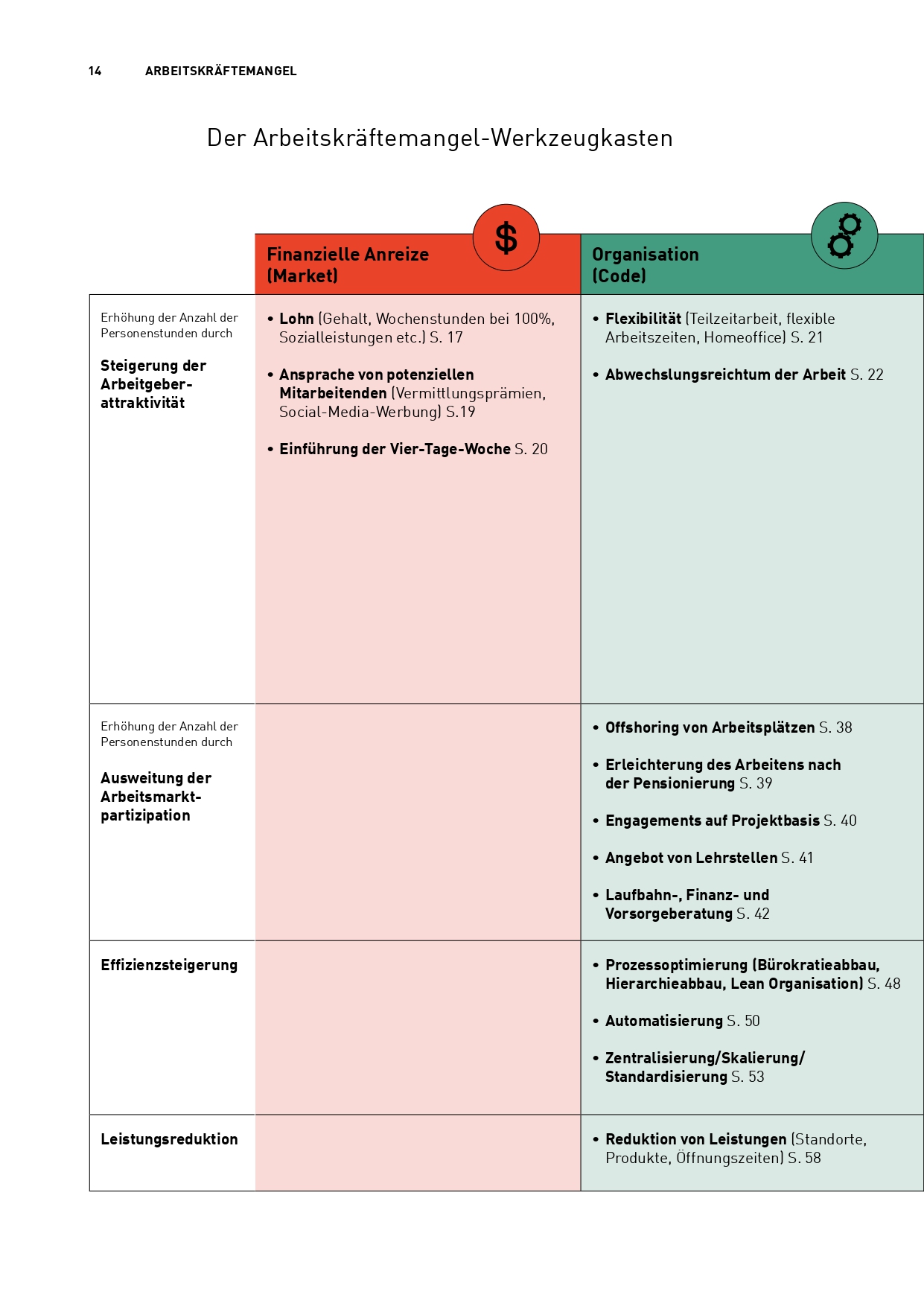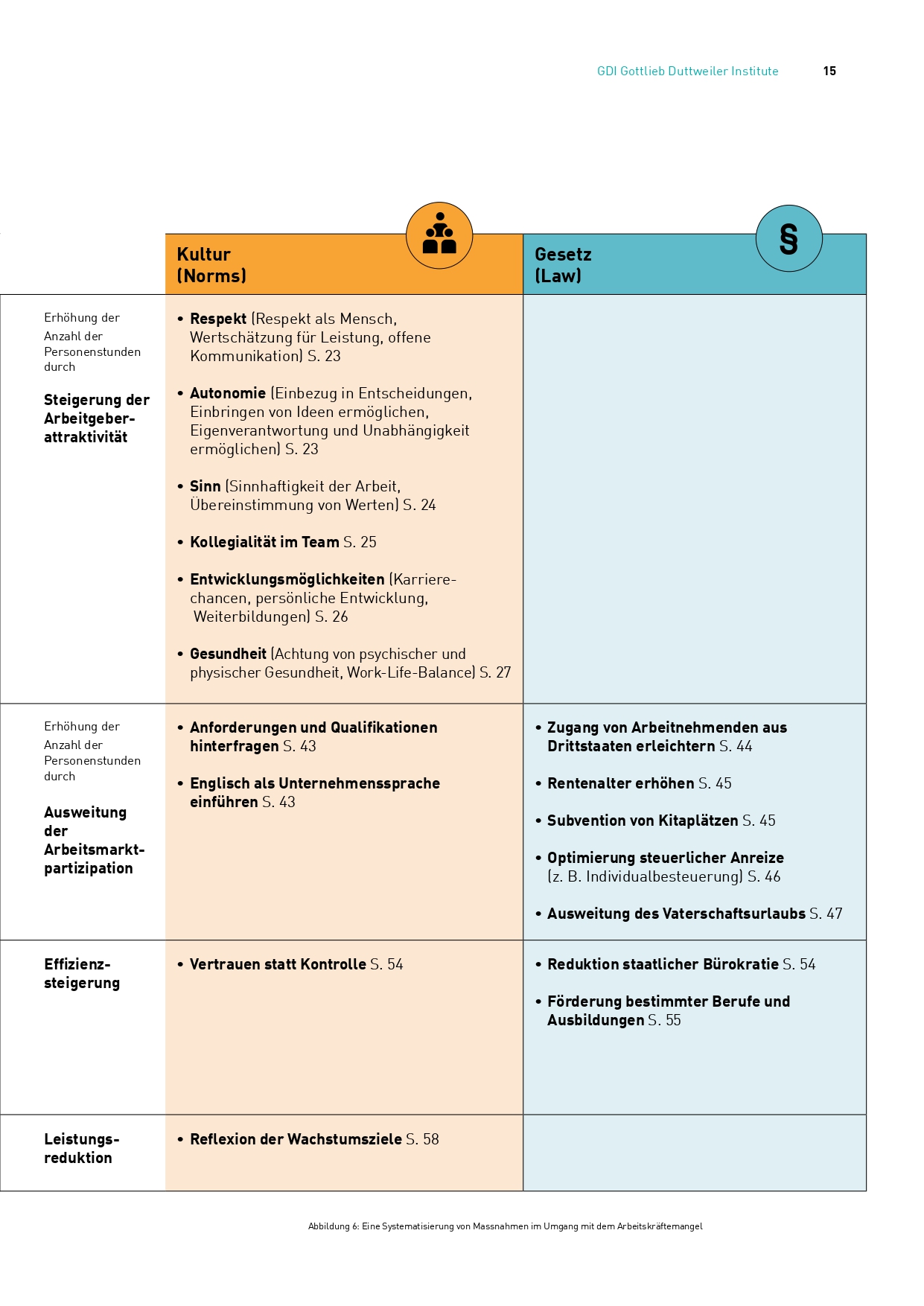Without immigration, the Swiss labour market will shrink. But even with high immigration numbers, the previous growth of the labour market will not be sustained. Employers must adapt to this situation. In order to answer how they can do this, this study provides a compilation and systematisation of different measures to deal with the labour shortage.
The study provides a toolbox that not only shows different options, but also offers a grid into which different approaches can be placed. In addition, there are other measures that are not listed in this study. The grid provides actors with a system that helps them to generate new ideas for measures that are relevant to their specific situations. This is because this grid aims to be used as generally as possible and is not directed at a specific sector.
A simple formula
The different measures that can be taken to deal with labour shortages are roughly divided into three categories. They are based on a simple formula according to which the work output is the product of person-hours invested and labour efficiency:
Anzahl Personenstunden x Effizienz = Leistung
This equation falls out of balance because with labour shortages it becomes more difficult to maintain the number of person-hours. It is possible to start directly with person-hours and to increase them again – either by enhancing employer attractiveness and attracting people to the company at the expense of the competition, or by bringing people who are not working (in Switzerland) into the labour market or encouraging people who are already working here to increase their hours – in other words, by expanding labour market participation. In addition to these two levers for increasing the number of person-hours, the efficiency of work can also be increased, for example through organisational measures or the automation of work. Finally, the output can also be adjusted to the reduced number of staff, i.e. be decreased.


The labour shortage toolbox (English, PDF)
The study Strategien im Umgang mit dem Arbeitskräftemangel – eine Übersicht», which was published by the Gottlieb Duttweiler Institute on commission of the Migros Group, can be downloaded free of charge.